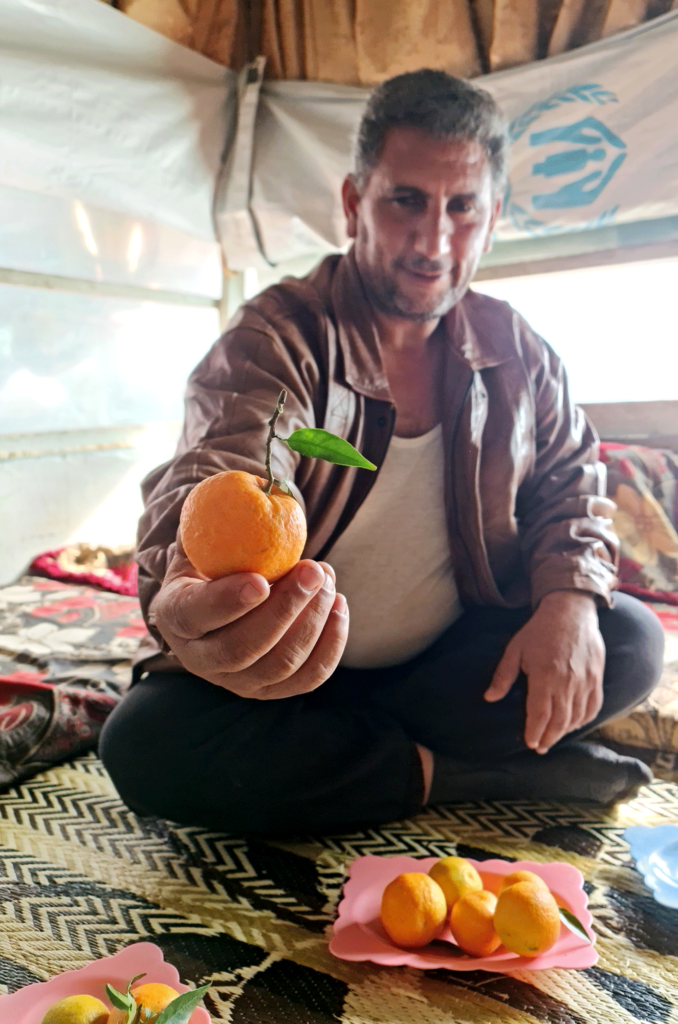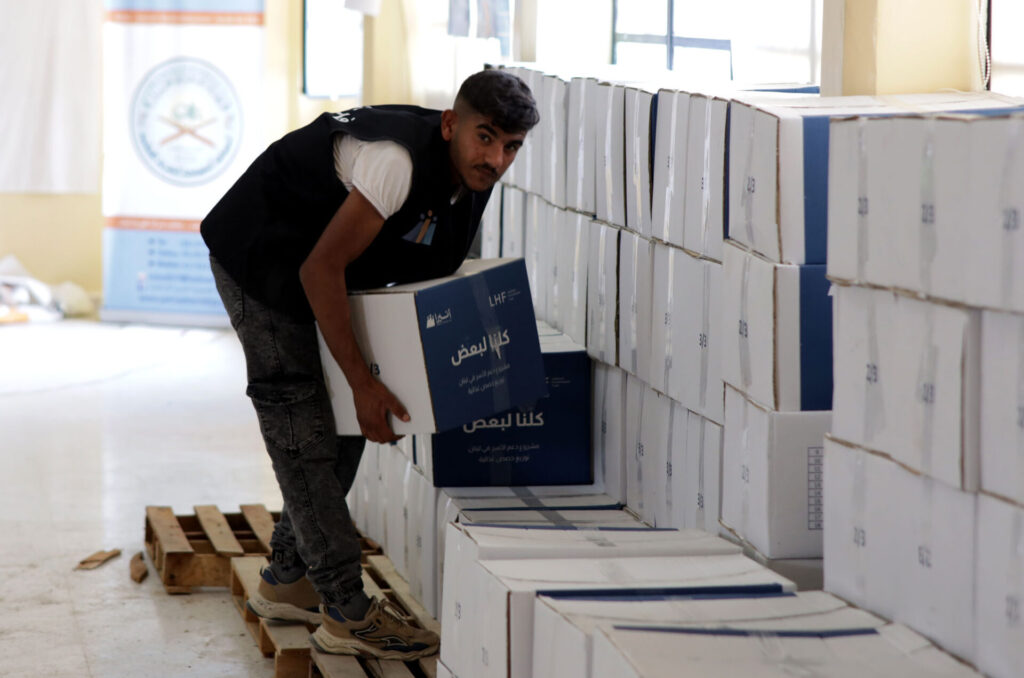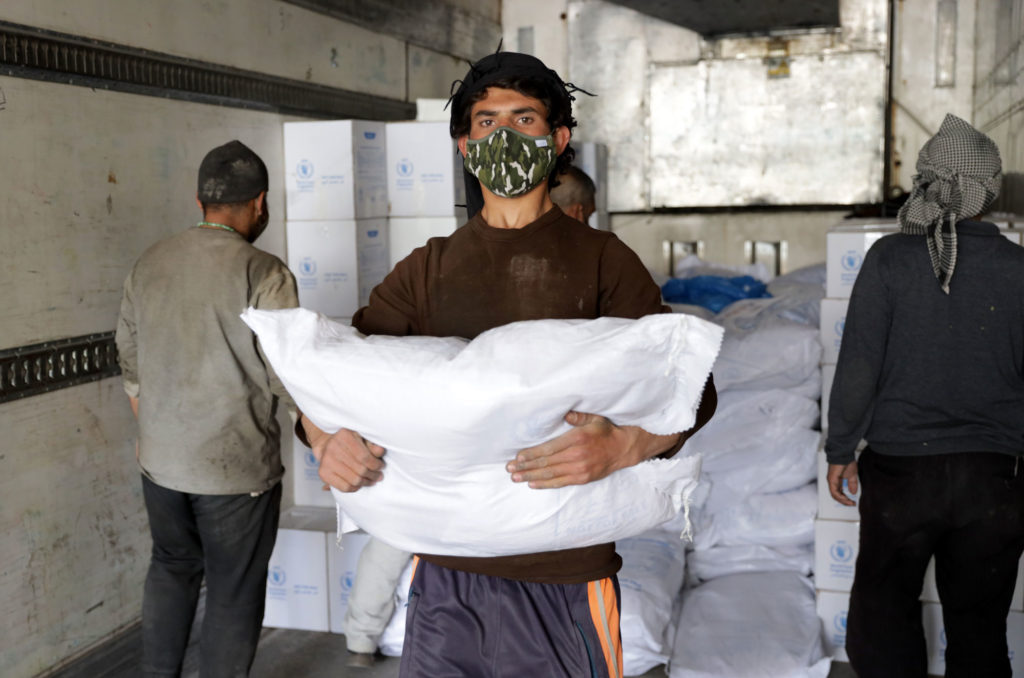Dec, 2022
Anera and Lebanon Humanitarian Fund work together to alleviate Lebanon's food security challenges
One of the worst financial and economic crises the world has ever seen has been raging in Lebanon for almost three years. The economic, political, and social crisis that has plagued Lebanon since October 2019 is even more severe today. For many already economically disadvantaged families, an inability to put food on the table is a very real, everyday fear. According to surveys done by the World Food Program in September and December 2021, 1.8 million Lebanese people (or 46% of the country's population) are food insecure.
UN OCHA's Lebanon Humanitarian Fund (LHF), which aims to meet prevailing needs during times of crises, has once more partnered with Anera for the implementation of a food security project to address the expanding gap in food needs. In five rounds over ten months, the project will make it easier for 1,070 food insecure households to receive nutrient-balanced food and cash transfers.
"Lebanon's food price inflation is currently the second highest in the world, and we are witnessing a daily increase in the rates of critically low access to food. Thousands of people do not have enough to eat," says Dima Zayat, Anera’s deputy country director. "We are glad we are able to contribute to fighting hunger in Lebanon."
Anera does not work alone but rather engages with grassroots organizations in different areas of the country to oversee distribution and make sure no family in need is left behind. Partners include the Social Skills Association in Bhannine, the Thinking About Others association in Tripoli, the Awareness and Conciliation association, and the Al-Hamidiyah association in Akkar.
Robert Ayoub, one of the founders of Think About Others, says it is hard to dismiss the crisis when friends pull you aside and confide their vulnerability and hidden poverty. “In a catastrophe as serious as this, you cannot turn your head the other way.” However, he explains how grassroots organizations cannot support those most in need without the help from organizations like Anera and LHF.
The Social Skills Association in Bhanine village in the north of Lebanon is a long-time Anera partner. Diana Ghazzawi, who heads the association, says, "We are proud to have been selected for this project to serve as a distribution center for families who are struggling with securing their basic food needs."


“In a catastrophe as serious as this, you cannot turn your head the other way.”
The right to food is a basic human right
Elham, a grandmother of 68, is a caregiver for her disabled husband. Prior to the accident that caused his disability ten years ago, he worked at a well-known coffee shop, and the family was doing well. “We used to drive to Syria in the good old days to buy goods to resell in Lebanon.”
Elham, like many Lebanese families, had to sell many of her household items. "Things were better, and we were more comfortable, but now, I can't even afford to go to the neighboring town due to transportation prices," she says. "I don't even have carpets anymore."
She explained that she relies on the kindness of her friends, family, and neighbors. "There are still good people out there," she says. Many Anera staff working in these communities have observed that if it weren't for the generosity of people in Lebanon in helping each other, things today could be significantly worse.
Elham did not try to hide how thankful and happy she was with the food parcels and the monetary donation. She says this support has helped her and her family immensely. She has already made several purchases and prepared meals that her family hadn't had in a long time.
"These parcels are a huge support. We haven’t eaten meat since last Ramadan. I bought meat yesterday. I also bought spinach, cabbage, and other produce that has become too expensive recently.”
Abdelrazzak is a 46-year-old Syrian father of six children. He and his family have been living in a tented refugee camp in Bhannine since 2012. His three boys have been suffering from psychic trauma as a result of the Syrian conflict. They had lived near the front lines in Homs, Syria. "The sounds of cannons and bombs have severely affected them mentally," he says.
Abdelrazzak earns some money by working on farmlands. Sometimes, "if the land owner is kind enough to allow it, I take my eldest to help me."
Prior to the collapse of the Lebanese economy in 2019, he used to make 20,000 lira per day, equivalent to $13. "I could fill up my gas stove or get a small cut of meat for 10,000 lira," he says. Now he needs to work for an entire week only to refill his gas canister for warmth and cooking.
LHF and Anera’s support was especially timely for Abdelrazzak, who hasn't been paid for a full month. "If I hadn’t received this parcel, what would I have done? I really don’t know what I would have done."
He shares some figures to make the point. "For a family like mine, we need a gallon of oil, and a bag of rice and sugar each month. Before the crisis, a gallon of oil used to cost 35,000 lira, and a satchel of sugar used to be around 15,000 lira. Today, a gallon of oil is 150,000 lira. The sugar is 700,000 lira," he says. "And where would I get that kind of money?"
Like hundreds of families benefiting from this crucial project, Abdelrazzak ran to the nearest warehouse as soon as he received the cash transfer. “We will spend the money by stocking up on healthy food essentials to help us survive this winter. The first parcel has filled our pantry."


“If I hadn’t received this parcel... I really don’t know what I would have done.”
Abdelrazzak lives in a humble tent and struggles to put food on the table each day — but still, he serves the Anera team a big plate of mandarin oranges from a farm he works at because we are his guests. 'Those who receive will give,' as the saying goes. Abdelrazzak embodies this spirit.

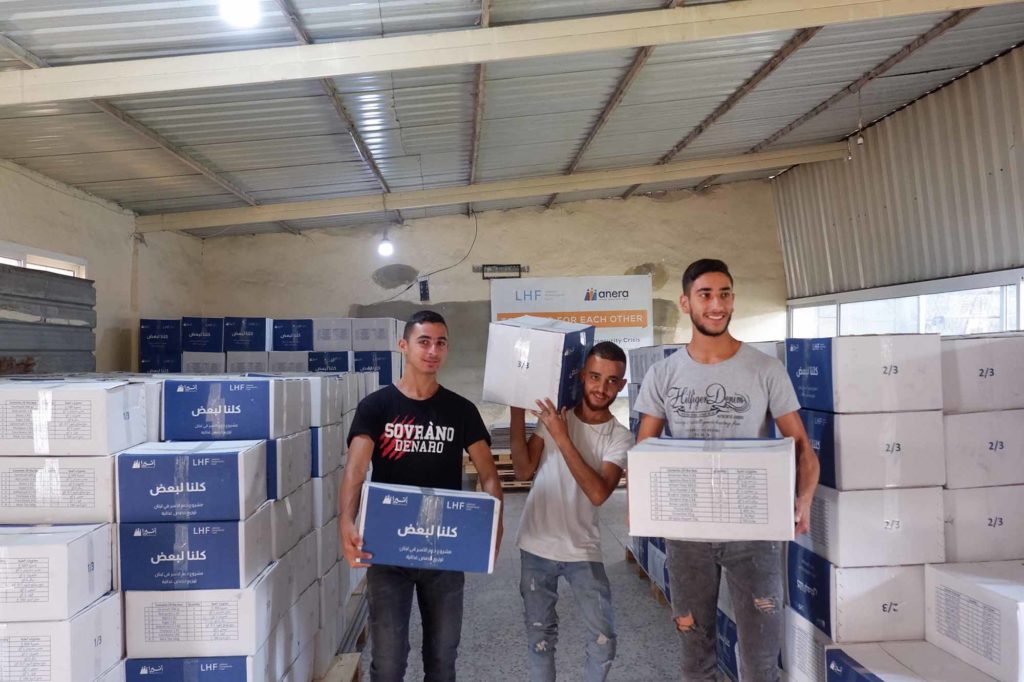
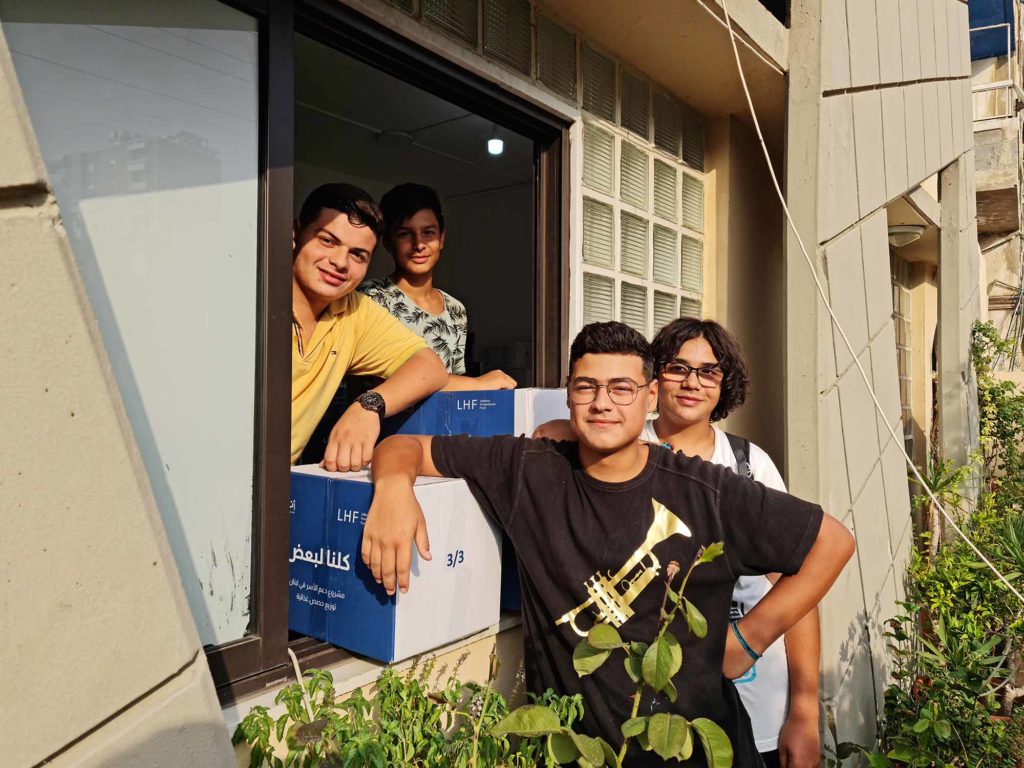
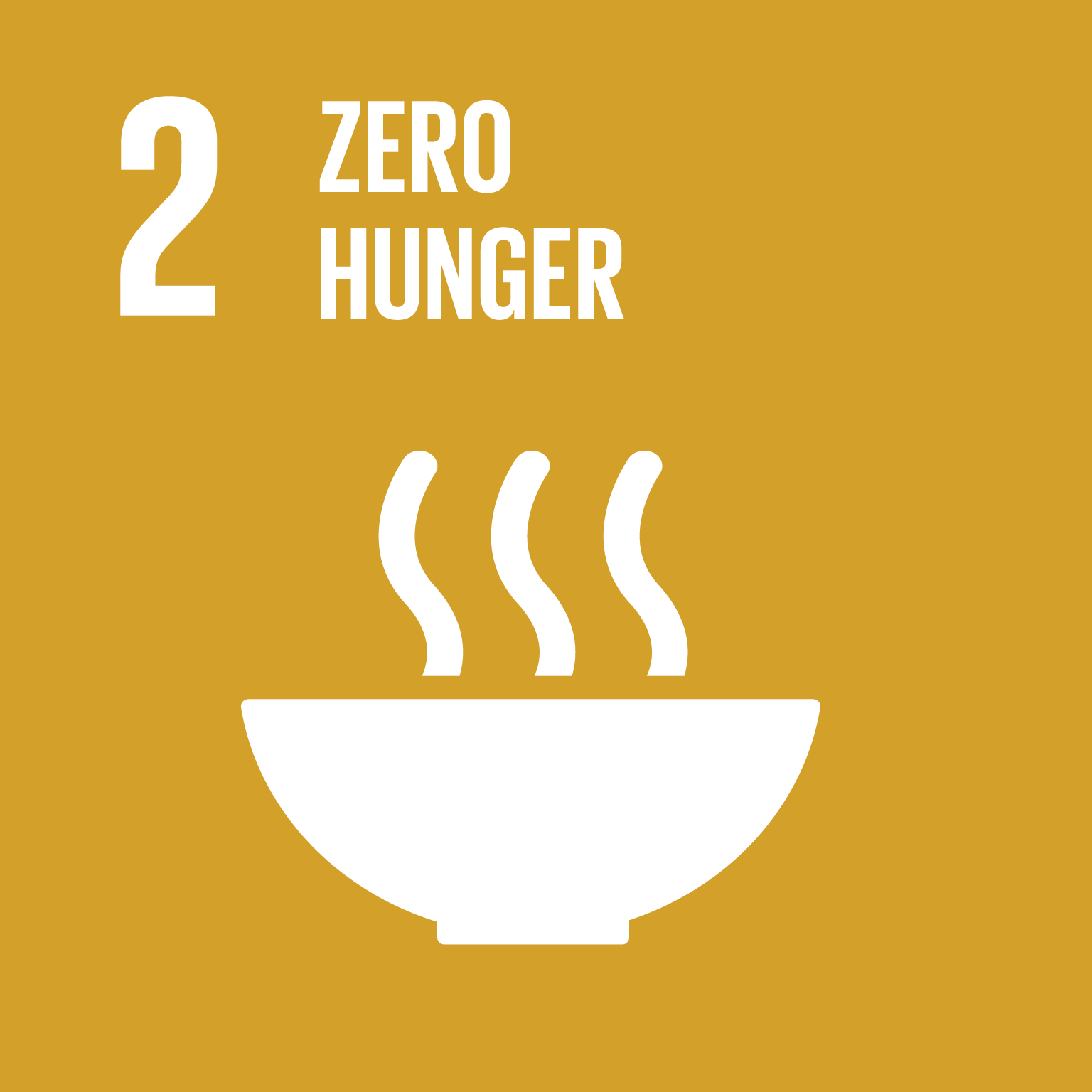
![lebanon, food-security, food-aid, lebanon-humanitarian-fund, 20221128_110418[1]-EDIT Elham's hand in frame along with one of her cats and a food parcel.](https://www.anera.org/wp-content/uploads/2022/12/lebanon-food-security-food-aid-lebanon-humanitarian-fund-20221128_1104181-EDIT-1024x678.png)
